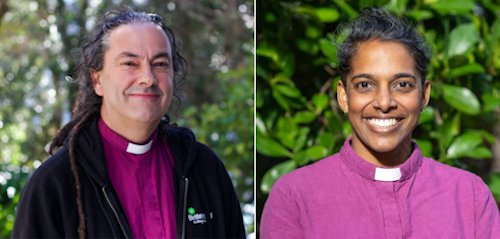
Rt Reverend Anashuya Fletcher, Assistant Bishop of Wellington
The Apostle Paul consistently encouraged believers to continue to be transformed into the likeness of Christ. No matter how long we have been a follower of Jesus, more life in and with God is always on offer.
Our Lenten Study this year utilises the Practicing the Way course within a wider session framework. We hope that it will encourage each of us as apprentices of Jesus and His way. Within the course there is a particular emphasis on spiritual practices. Spiritual practices are an integal part of our formation as followers of Jesus. This course helps refresh the ways that we engage with them and weave them into the ordinary rhythms of our lives.
We are mindful that our performative culture can so easily distort what is meant to be a beautiful gift. A helpful exhortation we have heard is not to "confuse the practices with the presence." Right practices do not equate to righteousness. It is by God's grace, as we open ourselves to God's power at work in and through us, that we are transformed to be more like Jesus so that we might have the character of Christ, and do what He did, the way He did it. We are excited for what God wants to do in our lives as we journey together this Lenten season.
We are grateful to Ven Mel McKenzie for shaping our sessions together, the team at St David's, Naenae for their feedback on the course, Rev John Crawshaw for his insights on the work of the Holy Spirit in our formation, and David Cross for compiling and overseeing the project this year.
Jesus said to his disciples "I am the way, the truth and the life." This Lent, may you experience this reality afresh.
In Christ,+Justin and +Anashuya
Introduction
Lent is a season of reflection, renewal, and spiritual growth. It's a time to pause, listen, and respond to God's invitation to draw closer. This was designed to take us through 6 weeks of intentional reflection, inviting you to explore what it means to follow Jesus, be formed in his likeness, embrace spiritual practices, meet God in pain and suffering and experiance healing from sin. It is hoped it you will slow down a little, listen deeply and respond faithfully to God's call.
It is hoped you can share this with someone near you. As followers of Jesus we are called upon to journey together, supporting and encouraging one another as we grow in faith and love. Whether you are new to the faith or have been walking with Jesus for many years, this study is intended to provide you with tools, insights, and practices to help you follow him more nearly.
 Welcome
Welcome Calendar
Calendar Today's Word
Today's Word Lauds
Lauds Terce
Terce Sext
Sext None
None Vespers
Vespers Compline
Compline Matins
Matins